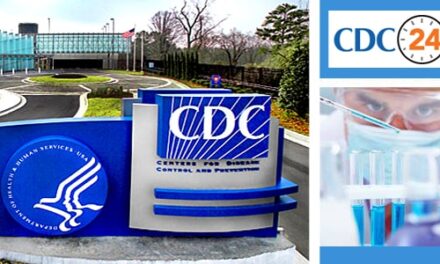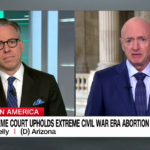
Biden, Trump, Vote Counts: Your Thursday Evening Briefing
(Want to get this newsletter in your inbox? Here’s the sign-up.)
Good evening. Here’s the latest.
1. They’re still counting, but new vote tallies are giving Joe Biden fresh momentum.
Two days after voting in the nail-biting race for the presidency ended, Mr. Biden extended the Democratic lead in Nevada and Arizona, two states where the counts were not expected to conclude until at least Friday. And President Trump’s lead shrank in Georgia and Pennsylvania.
Pennsylvania’s top election official said that she expected an overwhelming majority of the 550,000 remaining votes to be tallied by tonight and that a state winner “definitely could” be announced then.
“Democracy is sometimes messy,” Mr. Biden said in a brief statement to reporters. “It sometimes requires a little patience as well.”
2. Election protests took place in the streets and in the courts.
There were “Count Every Vote” rallies in places like Washington, D.C., and Philadelphia, while Trump supporters outside government election offices in Philadelphia, Phoenix, Atlanta, and Las Vegas, above, hoisting Trump signs and, without evidence, challenged the validity of the counts.
“I absolutely believe Donald Trump won Arizona and won the country,” said a retired real estate broker in Phoenix.
The Trump campaign scored a minor victory in a lawsuit in Pennsylvania, gaining the campaign’s election monitors better access to vote counters, while suits in Michigan and Georgia were rejected.
3. The “Stop the Steal” Facebook group was stopped.
The group, a short-lived hub for people to falsely claim that the ballot count was being manipulated against President Trump, amassed more than 350,000 users in less than 22 hours. At one point it was gaining 100 new members every 10 seconds.
Facebook removed the group today as part of the “exceptional measures” it’s taking on the election. “The group was organized around the delegitimization of the election process, and we saw worrying calls for violence from some members of the group,” a Facebook spokesman said.
Our technology columnist Kevin Roose argues that new rules put in place by Facebook and Twitter over the last four years have helped them avert their greatest fears.
4. New hope on Capitol Hill for a stimulus package.
The slow resolution of the presidential election, and the growing chance that Democrats and Republicans will divide power in Washington next year, has revived the possibility that lawmakers could agree on a new economic rescue bill before Christmas.
But it is unlikely to be as large a package as Democrats and President Trump had been discussing before the election, which was roughly $2 trillion.
When Congress returns for the lame-duck session after the elections, lawmakers could attach a stimulus plan to a bill that would fund the federal government past Dec. 11. Whether that would become reality depends on several variables, including whether Mr. Trump would be willing to sign it.
5. Coronavirus infections are engulfing the U.S.
The country surpassed 100,000 new daily coronavirus cases for the second time in two days, underscoring that the U.S. outbreak shows no sign of abating.
At least 11 states reported single-day records for new infections today, including Illinois, with more than 9,350, and Ohio, with more than 4,960. More than 50,000 Covid-19 patients are currently hospitalized across the country, an increase of roughly 64 percent since the beginning of October, and related deaths are up 21 percent over that period.
North Dakota, South Dakota and Wisconsin have led the country for weeks in the number of new cases relative to their populations. Above, a testing site in Madison, Wis.
A note of hope: A nasal spray blocked infection in lab animals, raising hopes for a new weapon against the virus.
6. A $26 billion deal may end thousands of lawsuits over the role that four companies played in the opioid epidemic, which killed some 230,000 people in the U.S.
McKesson, Cardinal Health and AmerisourceBergen shipped more than three-quarters of the nation’s opioids to pharmacies, rarely raising red flags about huge quantities even to small pharmacies in small towns. Johnson & Johnson supplied ingredients to opioid makers, and a subsidiary manufactured and marketed opioids.
The deal is $4 billion more than an offer made a year ago that was rejected by most of the states and municipalities suing. Most of the settlement money would help pay for treatment and prevention programs; $2 billion is earmarked for private lawyers involved. Above, an opiate recovery ambulance in St. Louis.
7. Wall Street is on track for its best week since April. But the economy remains in a slow recovery.
The S&P 500 jumped nearly 2 percent, defying predictions that investors would be spooked by election uncertainty. That rise is lifting the index toward a gain of about 7 percent this week, after last week’s loss of 5.6 percent.
Ahead of Friday’s national jobless report for October, the Labor Department said that 738,000 workers filed new claims for state unemployment benefits last week. That’s significantly fewer than in the spring but still extraordinarily high by historical standards.
8. The president of Kosovo resigned to face charges of crimes against humanity.
President Hashim Thaci, 52, a guerrilla leader during Kosovo’s fight for independence against Serbia, was indicted in June by a special international court in The Hague on 10 counts of war crimes.
Prosecutors accused him and other former independence fighters of being “criminally responsible for nearly 100 murders.” He had previously denied the allegations.
9. Our Thanksgiving wine panel is back.
Our wine critic, Eric Asimov, acknowledges that many Thanksgiving gatherings will be diminished because of the coronavirus pandemic. Holiday meals for four, or two or even one will not be unusual.
But that didn’t stop him and several fellow aficionados from tasting and recommending eight versatile wines, all $25 or less, that will be fine with almost any food. “Acidity, balance and relatively low alcohol are the watchwords,” Eric writes.
10. And finally, 300 million potential exit strategies.
A new report from NASA on the number of possibly habitable planets in the Milky Way puts the total at more than double the estimate of seven years ago.
Out of at least 100 billion stars in our galaxy, about four billion are sunlike. Supposing that even 7 percent of them have an Earth-size object orbiting in their “goldilocks” zone — neither too hot nor too cold for liquid water — adds up to 300 million.
“We want to be very conservative in case nature has any surprises regarding habitability,” said one of the authors of the report, which was based on almost a decade’s worth of data collected by NASA’s Kepler spacecraft. “So we are lowballing the estimates intentionally.”

















